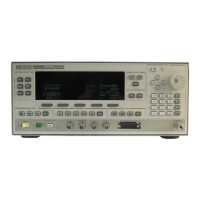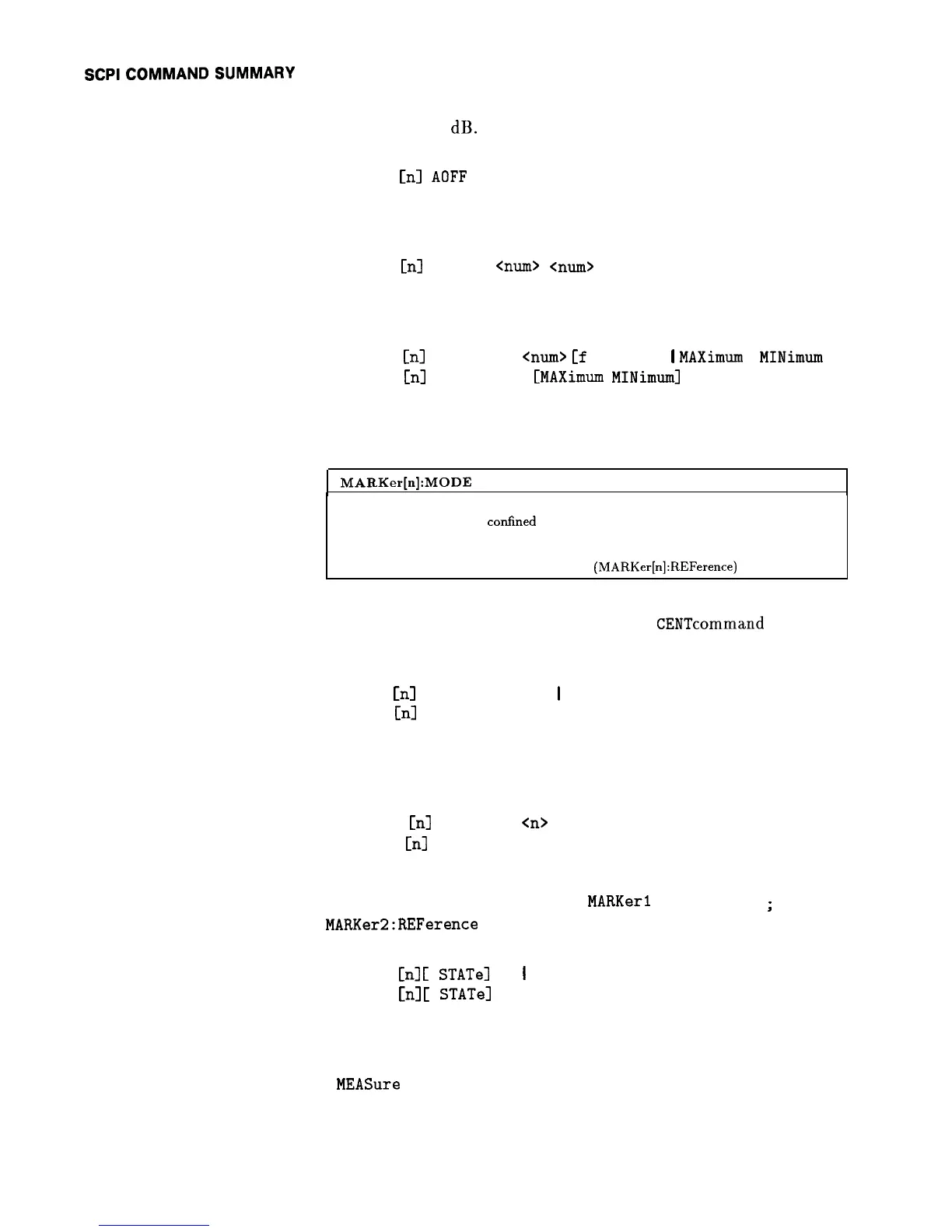be used, there is really only a single value for all the markers.
*RST value is 2 dB.
l
MARKer
[n]
:
AOFF
Sets all the markers to OFF at once. While [n] may be used, there is
really only a single switch for all the markers.
l
MARKer
[n]
: DELTa?
<num>
,
<num>
This query returns the difference in frequency between the two
specified marker numbers.
l
MARKer
[n]
: FREQuency
<num>
[f
req suffix]
I
MAXimum
I
MINimum
l
MARKer
[n]
: FREQuency?
[MAXimum
I
MINimum]
Sets and queries the specified marker frequency (marker number
one is the default if [n]
is not specified). The value is interpreted
differently based on the value of the marker mode.
MARKer[n]:MODE
How the frequency of the marker is determined.
FREQuency
DELTa
Absolute frequency is used. The limits are
confined
to the present START and STOP
frequency limits.
The value is specified with respect to the
reference marker. (MARKer[n]:REFerencel
The *RST values are the same as the FREQ :
CENTcommand
*RST
value.
l
MARKer
[n]
: MODE
FREQuency
1
DELTa
l
MARKer
[nl
: MODE?
Sets and queries the mode of the specified marker. Setting one
marker to delta turns all other marker modes to frequency. If [n] is
not specified, the default is one. *RST value is FREQuency.
l MARKer
[n]
: REFerence
<n>
l
MARKer
[n]
: REFerence?
Sets and queries which marker is the reference marker for use in
the delta mode. While [n] may be used, there is really only a
single reference for all the markers.
MARKerl
: REFerence 5
;
and
MARKer2:REFerence 5; both set marker 5 as the reference.
l
MARKer
[nl
[ : STATe]
ON
I
OFF
I
1 IO
l
MARKer
[n]
[ : STATe] ?
The state of the specified marker is set and queried (marker number
one if [n] is not specified). The *RST value for all markers is OFF.
l
MEASure : AM?
A query-only command that causes the modulating AM signal to be
S-40 Operating and Programming Reference

